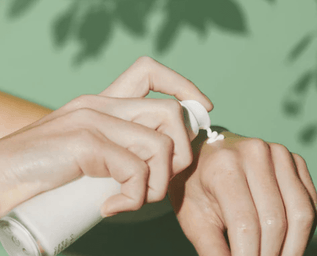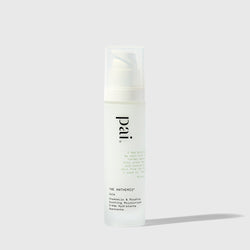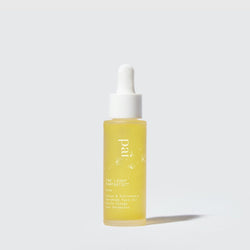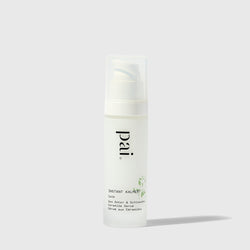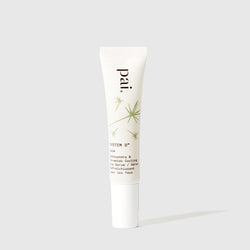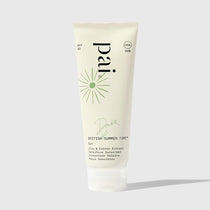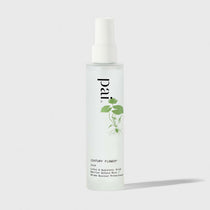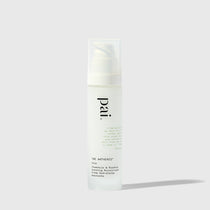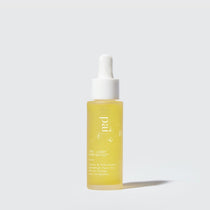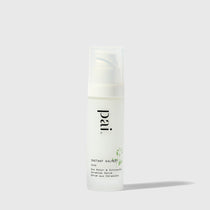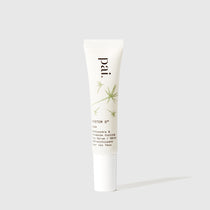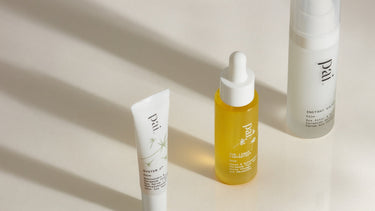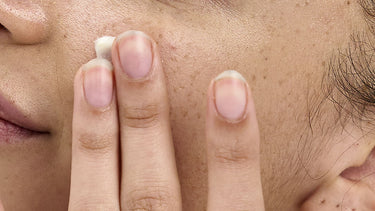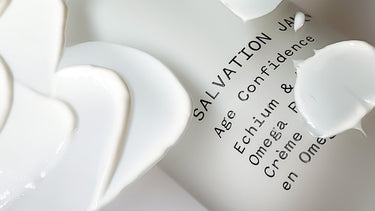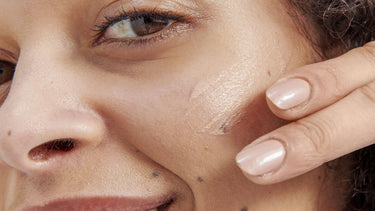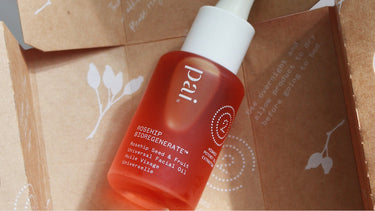Sensitive skin is a lot more common than you may think. In fact, it might be how you found Pai in the first place. But even once you’ve gone through the often labour-intensive process of identifying your skin to be sensitive, it does beg the question, why is it happening to me?
Read on to discover how to know if your skin is sensitive, what is causing it to be either sensitive or sensitised and how best to take care of it.

What is sensitive skin?
It's likely that if you’re reading this, you’re experiencing some element of discomfort, reaction or unpredictability when it comes to your skin. So first it’s important to figure out if your skin is sensitised, or sensitive.
Sensitised skin describes a temporary skin concern – usually caused by stress, sun damage, pollution, medication or intense beauty treatments (we’re looking at you, chemical peels!). These stressors damage the skin’s protective layer, leaving it susceptible to dehydration, infection and reactivity. Find your skin’s trigger (we use a skin diary or skin consultation to help), eliminate it, and your skin can make a full recovery in around six weeks.
Sensitive skin on the other hand is usually genetic and describes a longer-term skin type, which generally has an impaired skin barrier (the fatty outer layer of your skin which keeps water in, and irritants out). This may be down to conditions such as eczema, urticaria and rosacea. While they may lay dormant for years, sometimes these conditions can be triggered by periods of illness, hormonal changes and ageing.
You’ll know you have sensitive skin if you often react to skincare products, are prone to redness and blushing, or your skin is easily irritated by external factors including harsh weather.


Why do I have very sensitive skin?
The big question - why me? There are plenty of reasons why you might have sensitive skin, and unfortunately most of them are out of your control - but don’t let that stop you from looking for answers.
Knowing what’s causing your discomfort and sensitivity will help you to understand your skin better, which is essential so that you can tackle it in the right way. We’ve rounded up the most common causes of very sensitive skin - after all, forewarned is forearmed.
Genetics
For most of us, our skin type will be genetic - it's luck of the draw (well, genes) that will decide whether you’ll have dry, oily, combination or sensitive skin. Just as you may inherit your mum’s freckles or your dad’s dimples, your DNA can define what your overall skin will be like. This includes the passing down of skin conditions such as eczema, acne or rosacea, which will naturally make your skin much more sensitive. Cheers, parents.
Studies have also found that skin properties vary considerably among different ethnic groups, such as increased sensitivity in East Asian skin, while Black skin is often dry and flaky due to a lower level of ceramides (the fat molecules that help our skin to retain moisture). Your skin will also change as you age, as the all-important lipid barrier becomes thinner - potentially leading to more irritation and dryness as those birthdays come round.
Environmental factors
Excessive sun exposure and heat or harsh, biting cold winds will all have an effect on your skin, and can cause it to become increasingly sensitive. Both extremes will dry your skin out, leaving it feeling tight, dry and even cracked or peeling. Pollution is a problem, too. It helps produce free radicals which strip the skin's barrier lipids, which are there to keep dirt and impurities out and moisture locked in. All this leaves your skin compromised and sensitive - but the good news is that you can prevent it.

Wear a broad spectrum SPF every day for protection from the sun’s rays (no matter what the temperature), and layer up your moisture levels with products such as a tonic, hydrating serum and moisturiser or face oil to keep skin soft. Your skin relies on your wardrobe, too; a wide-brimmed sun hat will work wonders in keeping your face in the shade, while winter scarves and gloves will shield your skin in a cold snap to prevent it from drying out.
Skin disorders
While anyone can experience sensitivity, those with specific skin conditions are likely to fare worse - because the very nature of them usually means the skin barrier is impaired. The immune system triggers an inflammatory response to irritants that make it through your lipid barrier - leading to redness, itching and other such symptoms. Here are some of the most common conditions which lead to hypersensitivity:
- Eczema causes dry, inflamed and itchy skin because your skin barrier is unable to retain moisture as it should.
- Rosacea is a condition that mainly affects the face, causing redness and visible blood vessels across the nose, cheeks, forehead and chin, as well as swelling in some cases. It can cause skin to sting or burn, and often flares up with certain triggers such as stress or alcohol.
- Psoriasis is another dry skin condition that causes patches of scaly skin and rashes - commonly on the elbows, knees and scalp, though it can crop up all over the body. It's down to a higher skin cell turnover, creating a build-up of skin.
- Urticaria - the condition which prompted Pai's founder Sarah to create the brand - is also known as hives or nettle rash. It causes a raised, itchy rash and comes and goes with specific triggers.
How to care for sensitive skin
There’s no denying sensitive skin can be high maintenance - but stick to a few skincare rules and you should be able to keep a lid on any flare-ups.
- Patch test your products: Better safe than sorry. Try any new products on your inner elbow or neck for three consecutive days before you dive in to ensure your skin gets along with them.
- Get to know your triggers (and INCI lists): If you have a reaction to a product, take note of the ingredients to see if any patterns emerge. Keep a skin diary, too.
- Avoid fragrance: Synthetic fragrances are one of the most common irritants for sensitive skin. Opt for essential oils (in small amounts) or fragrance-free skincare instead.
- Seek out ceramides: While avoiding fragrance and harsh detergents, look for skin-friendly ingredients like ceramides, which help to keep your skin barrier healthy and build resilience.
- Look for the label: Ignore meaningless marketing terms like ‘hypoallergenic’ and ‘dermatologically tested’ - instead check for certifications like COSMOS for reassurance. At Pai we patch test every product as standard, so you can spot the logo on our products to know it’s been fully tested on sensitive skin to check it’s suitable.

Building a skincare routine for sensitive skin
There’s no one-size-fits-all solution for sensitive skin - it’s as individual as you are. What works for someone else might not click for you, so get to know your skin and become its BFF by curating a tailored skincare routine. By working out what your triggers are, what it does when it’s playing up and how it looks when it’s happy, you’ll be able to manage it much more effectively with products that are specially designed for sensitive skin.
Not sure where to start? Book in for a free skincare consultation with our skincare coaches for one-to-one advice.
We know better than anyone that sensitive skin can be a handful - but that’s exactly why we created Pai Skincare. Shop our organic skincare for sensitive skin for products you and your skin can rely on.



























